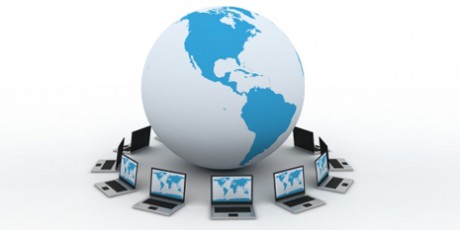Магистры-экономисты. Английский язык english for masters of economics
 Скачать 4.55 Mb. Скачать 4.55 Mb.
|
|
Give English equivalents for the following words and word combinations from Text 1. Интернет компания, мгновенно; системная организация снабжения, товарный запас, сектор торгово-промышленной деятельности, полупроводниковая промышленность, размещать заказы, уровень эффективности, выполнение заказа, взаимодействие через социальные сети, издержки торговых предприятий, развлечение, безопасность. Give your explanation of the terms.  online identity; e  commerce; commerce; market segmentation; dot-com; mobile device; computer hardware company.  Skim Text 1 and make a list of all the adjectives formed with the help of suffixes. Name the suffixes which are used to form adjectives. Make up your own examples. Insert the prepositions. The growth of the digital economy has widespread impact ____ the whole economy. Mobile devices, social networking, cloud computing, and other technologies are profoundly transforming the relationships ____ businesses and their customers. To win ____ the digital economy, companies must recognize that the time to act is now. The term 'digital economy' was coined in Don Tapscott's 1995 best-seller ‘The Digital Economy: Promise and Peril ____ the Age of Networked Intelligence’. ‘The Digital Economy’ was ____ the first books to show how the Internet would change the way we did business. The Digital Economy is therefore The New Global Marketplace and is open ____ business now more than ever. Digital Economy refers ____ an economy that is based on digital technologies. To win ____ the digital economy, companies must recognize that the time to act is now – and that the stakes are high. Four sentences have been removed from the text. Chose from the sentences A-E the one which fits each gap (1-4). There is one extra sentence. Give the main idea of the text. As a greater range of goods and services are offered electronically, allowing consumers to fulfill their needs and wants at an accelerated rate. B. A consumer is allowed to download the text to the device of his or her choice. C. A digital economy is one that is primarily concerned with the production and sale of electronic goods and services by businesses that function in a virtual environment D. One of the main focal points of a digital economy is on the quick and easy delivery of services via the Internet. E. Some sites participating in this digital economy setting even allow consumers to purchase individual tracks by their favorite artists and download them for nominal fees per song. The idea of a digital economy  1 T  he idea of a digital economy began to emerge during the last years of the 20th century, as technology paved the way for more and more electronic commerce to take place on line, including the delivery of software and ebooks via download upon remitting an online payment for those products. he idea of a digital economy began to emerge during the last years of the 20th century, as technology paved the way for more and more electronic commerce to take place on line, including the delivery of software and ebooks via download upon remitting an online payment for those products.  2 In recent years, electronic delivery has become increasingly popular in a number of fields. One common example has to do with reading material. In response to the increasing number of people who utilize internet-ready devices to read the text of different novels or textbooks, a growing number of suppliers have launched virtual bookstores that allow consumers to browse the offered selections and purchase electronic copies of those texts. Payment is rendered by a secured process at the website.  3 One of the benefits of the digital economy is that consumers are often able to obtain products at lower prices than their hard copy counterparts. For example, an electronic version of a new novel may be 25-50% less expensive than purchasing a hard copy of the book. In like manner, music aficionados may purchase the latest releases from their favorite artists for less than the cost of purchasing a CD in a local music store, or even buying the hard copy CD online and having it delivered by post. In recent years, the concept of a digital economy has begun to branch outside the commerce aspect of buying and selling electronic products online. Today, the idea also includes the use of virtual processes as part of the ongoing operation of companies, the internal workings of governments, and the fast and efficient execution of transactions between businesses. Technology continues to advance so the digital economy is likely to continue expanding.  4 Make a report on traditional and digital economy using the information from the table.
TEXT 2 THE RUSSIAN INTERNET ECONOMY T  he Russian Internet economy is demonstrating a substantial rate of growth, one that is significantly outperforming the rest of the domestic economy. According to BCG* reports, the Internet contributed to 1.9% of Russian GDP** in 2010, and is expected to grow by up to 2.8% by 2016. E-commerce, which combines retail and electronic payment systems, accounts for the large majority of the Internet economy, but other segments are also growing. Advertising is the fastest growing part of the Russian Internet economy, growing at a rate of 50% annually. he Russian Internet economy is demonstrating a substantial rate of growth, one that is significantly outperforming the rest of the domestic economy. According to BCG* reports, the Internet contributed to 1.9% of Russian GDP** in 2010, and is expected to grow by up to 2.8% by 2016. E-commerce, which combines retail and electronic payment systems, accounts for the large majority of the Internet economy, but other segments are also growing. Advertising is the fastest growing part of the Russian Internet economy, growing at a rate of 50% annually. The reasons for the growth are obvious: as IT and telecommunications infrastructure is developing steadily, more and more Russians are getting access to the Internet, via either a computer or their mobile devices. The country currently has more Internet users than any other European country. While currently 37% of the population is connected, the figure is expected to reach 71% by 2016, with 100 million Russians online. 53% of Russians say they are Internet users and 39% of Russians use the Internet on a daily basis. Another reason the Internet economy is growing significantly faster than other industries is improving regulation. There are two main reasons why IT companies are successful, apart from business efficiency. First, there is less regulation in the Internet market than probably in any other sector of the economy. That allows the best talent pool to be attracted and minimizes non-business-related expenses. Second, large Russian Internet projects, such as Yandex and Mail.ru, are often targeted at Russian-speaking audiences. Complicated Russian language semantics and Cyrillic spelling create a cultural competitive advantage for companies aiming at their local market, and they also arrived in the market first. Some Russian IT companies are going global. National giants, such as Mail.ru and Yandex, are buying foreign assets and considering a gradual expansion into foreign markets. Russian startups are now aiming at the global market rather than the domestic. Increased ties between Silicon Valley and Moscow have encouraged IT entrepreneurs to apply for international venture capital support. Global venture capital funds are, of course, more interested in companies competing in the global market. Partially for that reason, young Russian IT companies are increasingly international in terms of their ambitions, business models and financing. Internationalization is an obvious path for further development of specialized medium-sized globally competitive companies. However, there is a slight reluctance among the Russian leadership to support that policy as the Youth Affairs Agency and Ministry of Education and Science fears a brain drain. It is known that Russia can draw from a deep well of mathematical and scientific talent. Although the overall number of Russians in IT industries abroad is smaller than other nationalities, some representatives of the ruling elite are still cautious about Russian IT specialists moving to the West. However, IT professionals say that moving a company across borders, especially an IT company, is easier than moving a person. At some point in their development, many companies may consider relocating outside Russia, as conditions elsewhere may prove more favorable. In the end, the market does not always go where officials would like it to, especially in the free-spirited Internet. And there will be plenty of demand to meet at home. http://valdaiclub.com/economy * BCG – The Boston Consulting Group is a global management consulting firm with 87 offices in 45 countries. ** GDP – Gross domestic product. TEXT COMPREHENTION 10. Answer the questions. W  hat can you say about the rate of growth of Russian Internet economy? hat can you say about the rate of growth of Russian Internet economy? What is the fastest growing part of the Russian Internet economy? What are the reasons of the fast growth of the Internet economy? Why are some Russian IT companies going global? Why is there a slight reluctance among the Russian leadership to support internationalization of IT companies? VOCABULARY PRACTICE Match the English words with their Russian equivalents. One English word is extra.    скорость роста язык rate of growth  language  эмиграция научных работников  reluctance  majority    большинство предприниматель talent pool  entrepreneur  кадровый потенциал   активы assets  brain drain Chose the corresponding English word. Translate the sentences. As in many countries, in Russia financial _____ is easier to find the bigger you are. a) extreme; b) support; c) rate. 2. Western _____ capitalists have bought stakes in the most promising e-commerce companies. a) illegal; b) segment; c) venture. 3. Outstanding IT _____ from Russia have all it takes to become global leaders. a) business; b) entrepreneurs; c) conditions. 4. Digital Economy has been defined as the _____ of economics studying zero marginal cost intangible goods over the Net. a) branch; b) department; c) title. 5. Russian IT companies face a choice: they either have to offer _____ clients a wider range of services or expand into the international markets. a) dissatisfied; b) international; c) domestic. 6. The _____ «Digital Economy» was coined in Don Tapscott's 1995 best-seller «The Digital Economy: Promise and Peril in the Age of Networked Intelligence». a) term; b) access; c) inventory. 7. It is widely accepted that the growth of the digital economy has widespread _____ on the whole economy. a) peril; b) concern; c) impact. 8. Traditional firms are actively assessing how to _____ to the changes brought about by the digital economy. a) respond; b) browse; c) outperform. Match the beginnings and the endings of the sentences.  1. The majority of the best early-stage companies… 2. IT professionals say that moving a company across borders … 3. The Digital Economy is the new global marketplace… 4. To win in the digital economy, companies must … 5. In Russia angel investors, who put money into the youngest companies,… 6. Global venture capital funds are … 7. Mobile devices, social networking, cloud computing …  Internet    a. … more interested in companies competing in the global market. b. … are far rarer than in America, Western Europe or China. c. … are transforming the relationships between businesses and their customers. d. … and is open for business now more than ever. e. … especially an IT company, is easier than moving a person. f. … are globally oriented from the very beginning. g. … recognize that the time to act is now—and that the stakes are high. Economy 14. Correct the mistakes. South Africa’s digital economy the most developed in Africa and one of the fastest growing in the world. “The Digital Economy” was among the first books to show how the Internet will change the way we did business. Russia currently has more Internet users than any another European country. Having your owns online business gives you the opportunity to set your own income goals. Does “digital economy” means global businesses selling a digital product, such as SAS (software as a service) or data? Banks is trying to innovate and use digital tools to improve their traditional business. Winners in the digital economy will be those who able to operate under new assumptions – and who are willing to explore new approaches. 15. Translate into English. Ц  ифровая экономика – экономическая деятельность, основанная на цифровых технологиях. ифровая экономика – экономическая деятельность, основанная на цифровых технологиях.Концепция цифровой экономики появилась в последнем десятилетии 20-го века. Рост цифровой экономики имеет широкое влияние на всю экономику. Продукция цифровой экономики имеет ряд преимуществ: можно сократить издержки на транспортировку и обеспечить почти мгновенную доставку по всему миру. Цифровая экономика не ограничивает своё влияние только сферой бизнеса и торговли. Ключевую роль в цифровой экономике занимают информационные системы. Группа экспертов рассмотривает лучшие способы налогообложения цифровой экономики. Все «классические» рынки — финансов, товаров и услуг — стали более доступными, гибкими и по-настоящему глобальными. |


